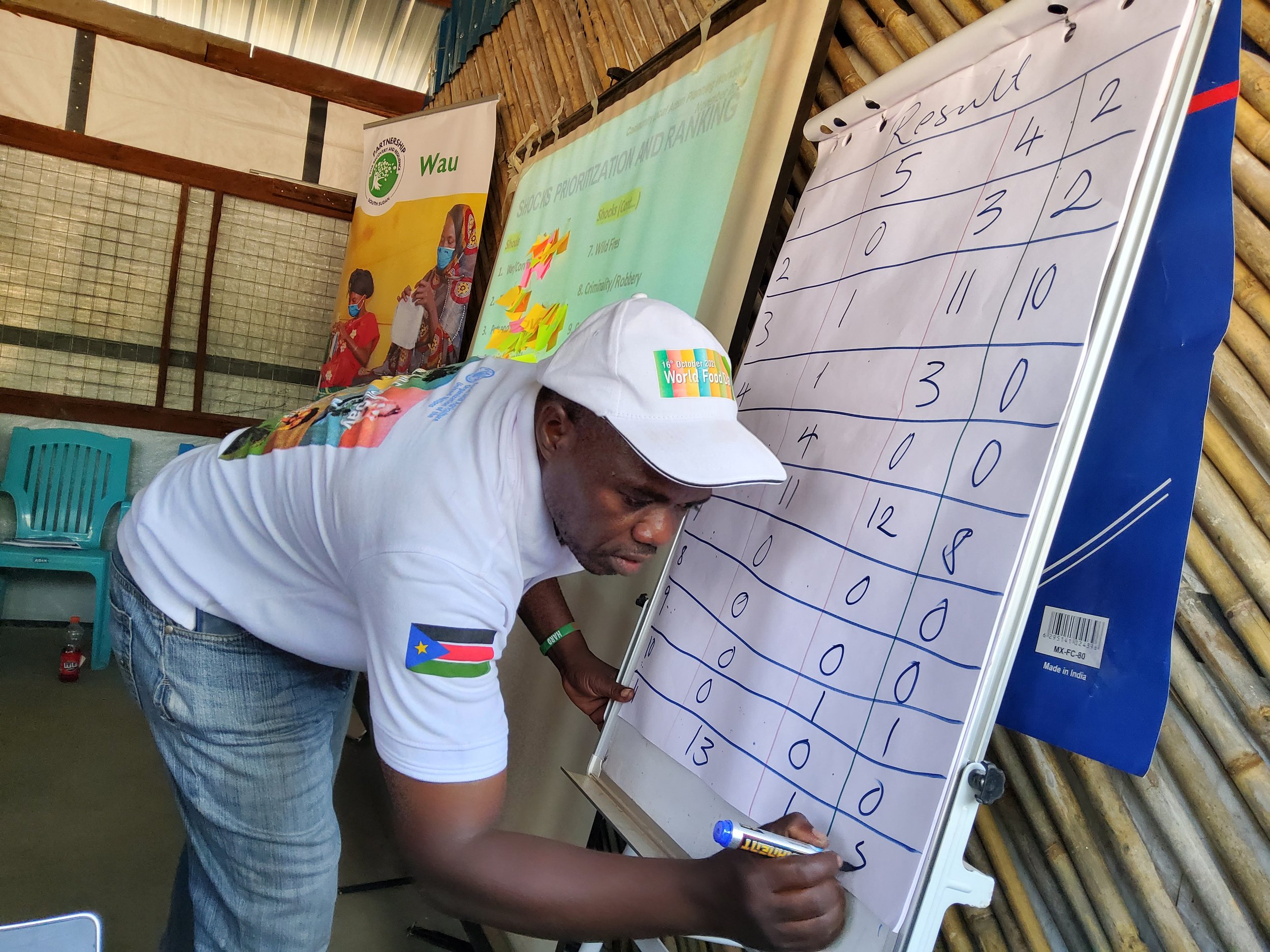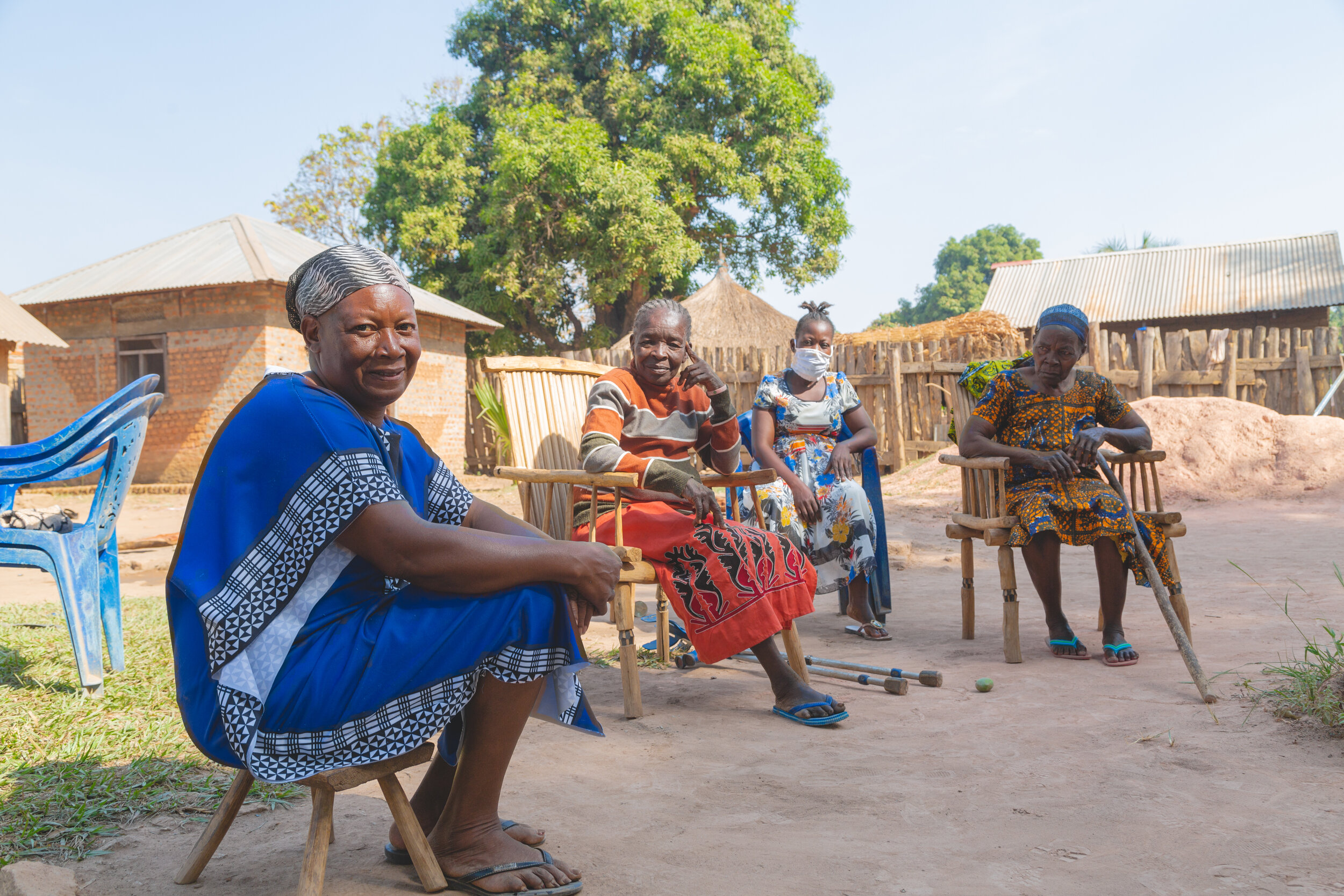Knowledge Management
Platform for USAID/Ethiopia Implementing Partners
USAID’s portfolio in Ethiopia is one of the largest and most complex in Africa. To foster learning among USAID Implementing Partners and enhance the delivery of our humanitarian and development programs in Ethiopia, this Knowledge Management Platform, captures key products and resources across our portfolio. The information contained on this site is accessible to all USAID/Ethiopia Implementing Partners.
Resource Guides
-

Volume 1: Inclusivity and Stakeholder Engagement
Practical tips for working in areas hard-hit by shocks and stressors like drought, insecurity, and volatile transport routes. Good practices for establishing a foundation of trust between communities and implementing partners. Five-step approach to helping communities set their own priorities for donor resilience programming.
-

Volume 2: Evidence-Informed Decision-Making
Good practices for helping communities use evidence to set and respond to resilience priorities. Guidance on promoting collaborative learning around the evidence through sense-making workshops, then translating learning into payam-level action plans at local action planning workshops.
-

Volume 3: Collaboration and Mutual Accountability
Insights on how to engage local government institutions and leaders to build bridges with civil society, addressing critical issues like transparency in job hiring practices. Examples from Policy LINK’s recruitment efforts in Jur River County, where donor projects had struggles to earn the trust of youth.
Field Activity Reports
-
Wau Joint Workplanning
An in-depth look into the fifth step of Policy LINK’s 5-Step participatory planning approach and process for building community-led resilience, the Joint Work Planning workshop brought together over 60 persons including community-selected representatives, county and state government officials, and USAID implementing partners. The Workshop provided an opportunity, space, and platform for mutual information exchange, trust-building, and dialogue on how best to forge collaboration between stakeholders to enhance resilience capacities and reduce chronic vulnerability to the most impactful shocks identified in the county.
-
Jur River Recruitment Report
From mid-August to September 2021, Policy LINK expanded its work into Jur River County with plans to conduct the community resilience mapping exercise. Having witnessed the growing wave of youth protest over the lack of employment opportunities within the humanitarian / development / peacebuilding sectors, Policy LINK initiated an innovation to its recruitment practice which became successful and gained high praise from the local community and local government, while avoiding youth unrest in the county. This report provides key insights and good practices for localizing recruitment at the county-level, while ensuring transparency and accountability.
-
Wau Local Action Planning
In November – December 2021, Policy LINK launched a bottom-up approach for facilitating community representatives in the development of community resilience action plans for addressing the most impactful shocks. This report provides in-depth understanding into the practical design, methodologies, and outcomes of a three-day workshop that was held in each of the five payams of Wau county with 35 representatives of the four corners of community.
-
Jur River Community Engagement
In early August 2021, Policy LINK launched a community engagement process in Jur River county that built upon the proven tactics employed while working in the Partnership for Recover and Resilience Partnership Areas of Aweil, Torit, Wau, and Yambio. Policy LINK was successful in reaching more than 50 community leaders representing youth, women, civil society, private sector, traditional authorities, and county and state government representatives for all six payams of Jur River County. This report chronicles the key steps, lessons learned, and challenges faced by the Policy LINK Area Program Managers.
-
Jur River Sense-Making
From November to December 2021, Policy LINK mobilized the participation of almost 650 persons from the six payams of Jur River county in Sense-making workshops, where participants reviewed and validated the most relevant community resilience mapping findings for local community members from the four corners of the community. This report covers the workshop methodologies, daily activities, key outcomes, community aspirations, lessons learned and challenges faced.
-
Wau Local Action Planning
The Wau County-level LAP workshop was conducted for four days from February 21 to 24, 2022 with an overall objective to produce the Wau County Resilience Priority Actions and the Wau County Resilience Action Plan. The information generated fed into the Joint Work Planning (JWP) Workshop for the formulation of a coherent Community Resilience Action Plan. The County-level LAP Workshop included the participation of the 25 payam delegates, the Wau County Commissioner, Mr. Jacinto Mattia Mboro, and the representatives from ACTED, FAO, and the Norwegian Refugee Committee (NRC).Description goes here
-
Jur River County-Level Sense-making Workshop
The three-day Jur River county-level Sense-making Workshop convened and empowered 39 participants including county authorities, USAID Implementing Partners (IPs), and state-level stakeholders with the community resilience mapping evidence to articulate resilience priorities and identify locally led solutions using an appreciative and facilitative leadership approach that puts the community first in the resilience-building process. here
-
Yambio Community Development Committee Workshops
As part of its technical support to PfRR, Policy LINK collaborated with the Yambio Area Reference Group (ARG) and Yambio Civic Engagement Centre (CEC) to conduct three CDC sensitization workshops in Yambio and Nzara between September 27 and October 12, 2021. These workshops were necessary to increase community awareness and engagement in the PfRR at the grassroots level.
Community Resilience Mapping Tools
-
Focus Group Discussions Facilitator Guide

-
Household Mapping Tool


Civic Engagement Centers:
Community-Based Structures for Inclusive Dialogue and Prioritization
With USAID Policy LINK support Civic Engagement Centers (CECs) in Aweil, Torit, Wau, and Yambio conducted consultative meetings with youth, women, persons with disabilities, traditional authorities, the private sector, civil society, and local government. CECs consist of local civil society organizations and community-based organizations.
Annual Learning Forum:
How Communities Can Voice Their Resilience Priorities Directly to Donors and Government
-

Summary Report
This report provides a day-by-day overview of the proceedings of the 2020 Annual Learning Forum, offering key takeaways and insights into participant data.
-

Technical Report
This report reflects on the planning, preparation, and support that went into organizing and producing the 2020 Annual Learning Forum.
Watch a recording of Day 1 of the 2020 Annual Learning Forum.
Watch a recording of Day 2 of the 2020 Annual Learning Forum.
Faces of Resilience Videos
In the lead up to the 2020 Annual Learning Forum, USAID Policy LINK produced four videos profiling local leaders in Aweil, Torit, Wau, and Yambio. The videos, which are included below, were aired at the forum and shared on its Resilience Marketplace.
Aweil
Torit
Yambio
Wau
Want to learn more?
The USAID Policy LINK team is committed to sharing knowledge with Implementing Partners working in South Sudan. If you would like to learn more about our programming or direct questions to one of our Area Program Managers, please use this form. A member of our team will get back to you shortly.
